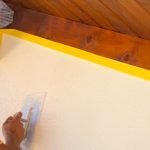Are you wondering, “Can you write off improvements on a second home?” Homeowners who invest in their second homes may be eligible for tax deductions on renovations and upgrades made to their properties. Understanding the nuances between a second home and an investment property is crucial when exploring this tax benefit.
While primary residences receive certain tax benefits, such as mortgage interest deductions, second homes have their own set of rules regarding improvements. To qualify for writing off improvements on a second home, homeowners must meet specific eligibility requirements set by the IRS. This includes using the property for personal use for a certain number of days per year.
Identifying the types of improvements that can be written off and learning how to track and document these enhancements accurately is essential for maximizing tax benefits. By understanding the potential tax advantages associated with improving a second home, homeowners can make informed decisions about investing in upgrades that not only enhance their living space but also provide financial benefits come tax time.
Understanding the Difference Between a Second Home and an Investment Property
When it comes to owning multiple properties, it is essential to understand the distinction between a second home and an investment property, especially when considering tax implications. A second home is a property that you primarily use for personal enjoyment, such as a vacation home or a weekend getaway. On the other hand, an investment property is purchased with the intention of generating rental income or appreciating in value over time.
One key difference between a second home and an investment property is how improvements are treated for tax purposes. While improvements on an investment property can typically be deducted as business expenses, the rules are different for second homes. In most cases, improvements on a second home cannot be written off as business expenses unless certain criteria are met.
For homeowners looking to write off improvements on their second home, it is important to note that the property must be considered a qualified residence according to IRS guidelines. This means that the property must be used personally by the owner for more than 14 days or 10% of the total days it is rented out at fair market value, whichever is greater.
Additionally, there are limits on how much improvement costs can be deducted based on specific rules set by the IRS.
| Second Home Improvement | Deduction Limit |
|---|---|
| Kitchen Renovation | $30,000 |
| Bathroom Upgrade | $15,000 |
Eligibility Requirements for Writing Off Improvements on a Second Home
When it comes to owning a second home, many people wonder if they can write off improvements on their property for tax purposes. Eligibility requirements for writing off improvements on a second home are specific and understanding them is essential to maximizing potential tax benefits. In general, the IRS allows deductions for certain types of improvements made to a second home, but it’s important to distinguish between a second home and an investment property.
A second home is typically used as a vacation getaway or a place for personal use, while an investment property is bought with the primary goal of generating rental income. The IRS has different rules and limitations when it comes to deductions for improvements based on whether the property is classified as a second home or an investment property.
For example, improvements made to an investment property are usually deductible as business expenses, whereas improvements made to a second home may have more restrictions.
To be eligible to write off improvements on a second home, taxpayers must meet certain criteria set by the IRS. Generally, the improvements must add value to the property or prolong its useful life. Additionally, the taxpayer must maintain adequate records and documentation of the improvement costs in order to claim them as deductions. Keeping track of receipts, invoices, and any other relevant paperwork can help substantiate these deductions in case of an audit by the IRS.
| Improvement Type | Deductible Amount |
|---|---|
| Kitchen Remodel | $15,000 |
| Bathroom Upgrades | $8,000 |
| Roof Replacement | $10,000 |
Types of Improvements That Can Be Written Off
Interior Improvements
When it comes to writing off improvements on a second home, there are various types of improvements that may be eligible for tax deductions. Interior improvements such as renovating the kitchen or bathroom, installing new flooring, updating electrical or plumbing systems, and adding energy-efficient appliances can typically be considered for write-offs. These improvements not only enhance the overall value and comfort of your second home but can also provide potential tax benefits.
Exterior Enhancements
In addition to interior upgrades, certain exterior enhancements
Energy-Efficient Upgrades
Making energy-efficient upgrades to your second home not only reduces utility costs but
Be sure to keep detailed records of these upgrades and consult with a tax professional to determine eligibility for potential tax deductions related to energy efficiency improvements on your second home.
How to Track and Document Improvements for Tax Purposes
Improvements made to a second home can potentially offer tax benefits, but in order to take advantage of these deductions, proper tracking and documentation are essential. When it comes to writing off improvements on a second home, the IRS requires taxpayers to keep accurate records to support their claims. This means maintaining detailed records of all expenses related to the improvements, including receipts, invoices, and any other relevant documentation.
One important aspect of tracking improvements for tax purposes is distinguishing between repairs and improvements. While repairs are typically considered regular maintenance and cannot be written off, improvements that increase the value or extend the life of the property are eligible for tax deductions. Examples of such improvements include upgrading the kitchen or bathroom, adding a new roof, installing a swimming pool, or renovating an outdoor deck.
In addition to keeping detailed records of expenses, it is also important to track the date and cost of each improvement made to the second home. This information will be useful when calculating the depreciation of the property over time and determining the total amount that can be claimed as a deduction. By effectively tracking and documenting improvements on a second home, homeowners can maximize their tax benefits while staying compliant with IRS regulations.
Potential Tax Benefits of Writing Off Improvements on a Second Home
When it comes to owning a second home, there are potential tax benefits that can be advantageous for homeowners who make improvements to their property. By understanding the regulations and eligibility requirements, individuals can leverage these benefits to maximize their tax deductions. One common question that arises is whether or not improvements on a second home can be written off for tax purposes. Fortunately, the answer is yes, but with certain conditions that need to be met.
Eligibility Requirements for Writing Off Improvements
In order to write off improvements on a second home, it’s important to differentiate between a second home and an investment property. The IRS defines a second home as a property that is primarily used for personal enjoyment and not rental or income-producing purposes. Therefore, if you use your second home for personal vacations and occasional rentals rather than as a full-time rental property, you may be eligible to deduct improvement expenses.
Types of Improvements That Can Be Written Off
Various types of improvements made on your second home may qualify for tax deductions, such as renovation projects, repairs, additions, landscaping, or upgrades that enhance the overall value of the property. However, routine maintenance and repairs typically do not qualify for deductions unless they are considered major improvements that increase the value of the home.
It’s crucial to keep detailed records of all improvement expenses and receipts for materials and labor in order to support your deductions during tax season.
Common Mistakes to Avoid When Writing Off Improvements on a Second Home
When it comes to writing off improvements on a second home, there are certain common mistakes that many homeowners may inadvertently make. By being aware of these pitfalls, you can ensure that you maximize the tax benefits available to you while avoiding any potential issues with the IRS. Here are some common mistakes to avoid when writing off improvements on a second home:
- Not keeping proper documentation: One of the most crucial aspects of writing off improvements on a second home is maintaining detailed records of all expenses related to the improvements. This includes invoices, receipts, contracts, and any other relevant documents. Failing to keep proper documentation can result in not being able to prove the legitimacy of your deductions in case of an audit.
- Confusing personal use and rental use: If you use your second home for both personal vacations and rental income, it’s important to accurately track the time spent for each purpose. You can only deduct improvements made during periods when the property is used for rental income purposes. Mixing personal expenses with rental expenses can lead to improper deductions and potential penalties.
- Ignoring depreciation rules: Improvements made to a second home are typically subject to depreciation over time. It’s essential to understand the depreciation rules set by the IRS and accurately calculate the depreciation expense for each improvement. Failure to do so can result in incorrect deductions and potential tax liabilities.
Avoiding these common mistakes can help you navigate the complexities of writing off improvements on a second home effectively. By staying organized, keeping accurate records, and understanding the tax rules applicable to second homes, you can make the most of available tax benefits while ensuring compliance with IRS regulations.
All in all, maximizing tax benefits for your second home through deductions for improvements requires careful planning and attention to detail. By steering clear of common mistakes like those mentioned above, you can position yourself for significant savings come tax season while enjoying your vacation property hassle-free.
Remember that seeking advice from a tax professional or accountant specializing in real estate taxation can also help you navigate any uncertainties or questions that may arise along the way.
Legal Considerations and Regulations Related to Writing Off Improvements on a Second Home
When it comes to writing off improvements on a second home, there are legal considerations and regulations that must be taken into account. Understanding these guidelines is crucial to ensure compliance with tax laws and maximize potential benefits. Here are some key points to keep in mind:
- Consult with a tax professional: Before claiming any deductions for improvements on your second home, it is highly recommended to seek the advice of a qualified tax professional. They can provide valuable insights on eligibility requirements, allowable deductions, and potential pitfalls to avoid.
- Familiarize yourself with IRS rules: The Internal Revenue Service (IRS) has specific rules and regulations regarding the deduction of home improvements. It is important to stay informed about the latest guidelines to accurately report improvements on your second home.
- Keep detailed records: Proper documentation is essential when claiming deductions for improvements on a second home. Make sure to keep receipts, invoices, contracts, and other relevant paperwork to support your claims in case of an audit.
In addition to following legal considerations and regulations, it’s important to understand that not all improvements made to a second home can be written off for tax purposes. Eligible expenses typically include those that increase the value of the property or extend its useful life. By staying informed, keeping meticulous records, and seeking professional guidance, you can navigate the process of writing off improvements on a second home effectively and in accordance with existing laws.
Conclusion
In conclusion, the ability to write off improvements on a second home can provide valuable tax benefits for homeowners. By understanding the distinction between a second home and an investment property, individuals can determine their eligibility for these deductions. It is important to meet certain requirements and keep detailed records of the improvements made to the property in order to take advantage of this tax-saving opportunity.
When it comes to types of improvements that can be written off, both major renovations and smaller upgrades may qualify for deductions. Keeping receipts and documentation is crucial for substantiating these expenses during tax season. By staying organized and proactive in tracking improvements, homeowners can potentially lower their tax liability while enhancing the overall value of their second home.
Although there are potential tax benefits to be gained from writing off improvements on a second home, it is imperative to avoid common mistakes and stay compliant with legal considerations and regulations. Consulting with a tax professional or financial advisor can offer valuable guidance in maximizing these benefits while minimizing risks. Ultimately, careful planning and attention to detail can lead to significant savings for homeowners seeking to make their second home a sound financial investment.
Frequently Asked Questions
What Are the IRS Rules for Second Homes?
The IRS rules for second homes can vary depending on how you use the property. If you use it as a personal residence, you may be able to deduct mortgage interest and property taxes, subject to certain limits. However, if you rent out the second home, different rules apply, such as reporting rental income and allowable deductions.
Can You Use Home Improvements as a Tax Write Off?
Home improvements can generally not be directly written off on your taxes. However, the cost of home improvements can impact your taxes when you sell the house by adjusting the cost basis and potentially reducing capital gains taxes. It is important to keep records of all home improvement expenses for tax purposes.
Can You Deduct a Loss on a Second Home?
If you experience a loss on a second home, such as selling it for less than what you paid for it, typically this loss cannot be deducted on your tax return unless the property was used for business or rental purposes. In that case, special rules apply for deducting losses related to investments properties or rental real estate businesses.

I’m thrilled to have you here as a part of the Remodeling Top community. This is where my journey as an architect and remodeling enthusiast intersects with your passion for transforming houses into dream homes.





